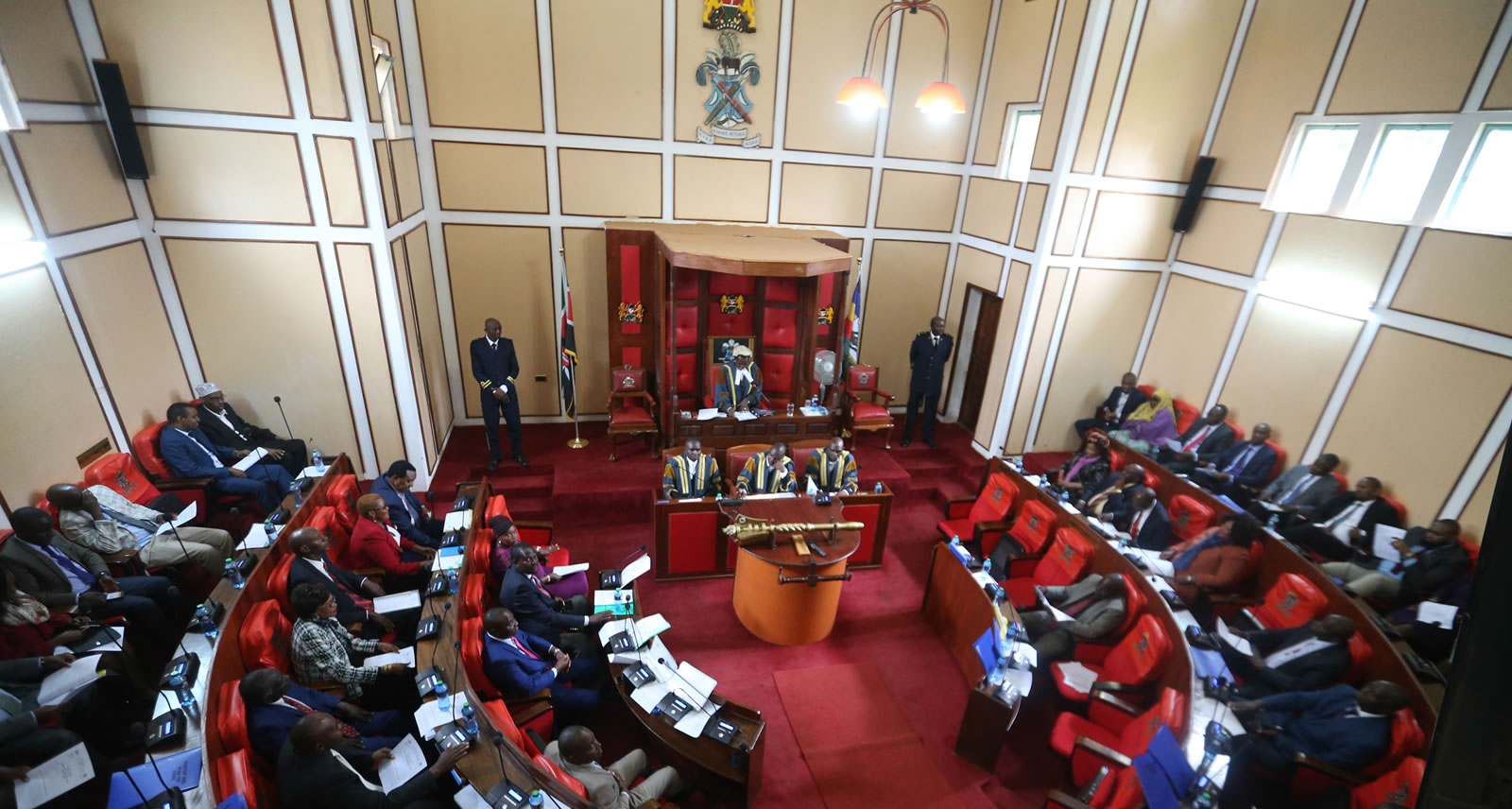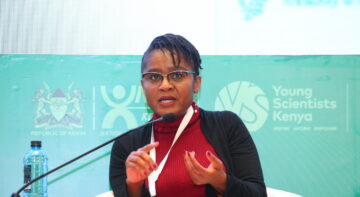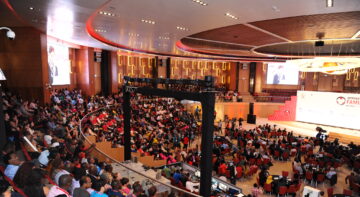Blogs

Given ongoing reforms over the last two decades, parliaments in Africa are increasingly playing an important role in development efforts. This is the reason why AFIDEP prioritises parliaments in its efforts to support government institutions to improve policy and investment decisions for more effective development. At national level, we have worked with the Parliaments of Kenya and Malawi to stimulate and facilitate a focus on strengthening technical and institutional capacities for demand and use of evidence in debate and decision-making since 2013. At regional level, we co-convene the Network of African Parliamentary Committees on Health (NEAPACOH) (since 2011), whose purpose is to strengthen and focus these committees on tackling urgent health issues on the continent.
Over the years, our work has involved: synthesising and providing evidence needed by committees or parliamentarians to inform their debate and discussions on key development issues; building individual and institutional capacities for increased demand and use of evidence; and generating evidence that improves our understanding of the evidence ecosystem in African parliaments and provides lessons for strengthening ongoing parliamentary initiatives for improving performance. Key lessons we have drawn from this work are summarised below.
1. Parliaments have institutional structures for facilitating evidence use, but these are weak and sometimes ineffective
In Kenya and Malawi and in many of the other African parliaments that we engage through the NEAPACOH network, there are institutional structures to support the use or consideration of evidence in debate and decision-making. These include research divisions, budget offices, legal counsel offices, libraries, and Internet and other IT support. The main challenge, however, is that in most of these parliaments, these structures are often ineffective in adequately facilitating evidence use. For example, libraries have outdated collections, no functional computers, and lack access to reliable Internet and subscriptions to relevant online databases. Except for Kenya and Uganda, research teams in many parliaments are thinly staffed and therefore unable to meet the evidence demand in the parliaments.
2. Need to create awareness, interest and motivation for evidence use among MPs
We have learned from our work that many MPs are often not aware of the important role of evidence in their work, and/or do not know the different types of evidence and evidence sources available for them to use in their work. In one incident, an MP said to us “I’ve been hearing about evidence, but I’ve not understood what this is all about. This meeting has helped me understand what evidence is about and I don’t know why you did not start this work earlier on in our term in parliament. This is so important to our work.” In another incident an MP said to us “I thought the evidence you’re talking about is the evidence that people give in court cases, and since I stopped going to court, I didn’t have much interest in this. But now I see that this is different and is important for my work.” We have realised that just creating awareness among MPs on evidence, types and sources of evidence can be useful in generating interest, demand and motivation for evidence use among MPs.
3. Getting MPs involved in championing evidence: Are networks a possible solution?
The evidence structures within parliament noted in 1 above do not provide institutional platforms for MPs to actively champion evidence use in parliament. To navigate this issue, we have supported an MP-led network for evidence in Kenya (the Parliamentary Caucus on Evidence-Informed Oversight and Decision-Making since 2015) whose focus is to provide an institutional platform for MPs to champion evidence use within committees and on the floor of the house. To ensure continuity beyond the electoral cycles, the Kenyan Caucus has been embedded in the Research Unit, i.e. the Research Unit provides a secretariat for coordinating the activities of the Caucus as well as re-establishing the Caucus when new parliaments come into place. In Malawi, MPs have spearheaded the formation of the Parliamentary Caucus on Population and Development. We are drawing on this Caucus to focus MPs on evidence on different population and development issues in the country so as to stimulate commitment and actions from MPs on tackling these issues. These two caucuses draw on MPs from across different parliamentary committees, which is useful in ensuring that the work of the caucuses influences discussions and decisions in different committees in Parliament. There have been discussions on whether these caucuses should be formalised into parliamentary committees. However, our experience shows that this will limit their reach (among MPs) and their influence on committee work. As cross-cutting caucuses, they attract MPs from different committees, which facilitates their influence across committees.
4. Efforts to create demand for evidence should go hand-in-hand with efforts to meet this demand
Our work with the parliaments has created demand for evidence on a wide range of subject areas, some of which we (as AFIDEP) lack internal capacity to provide. For instance, following an evidence forum for Kenya’s Parliamentary Committee on Health on financing healthcare in the country, the Committee requested for specific analyses on different financial options that the country can take to enable adequate and sustainable funding for the health sector. This information was needed by the committee urgently to inform their discussions on an amendment bill the committee was discussing. We failed to meet this need because it was difficult for us to quickly find partners who could respond to this need immediately and on a “pro bono” basis. We have received many other evidence demands from parliaments that we have not been able to meet. If efforts that create demand for evidence fail to meet this demand, MPs could become disillusioned.
5. Resourcing EIPM efforts with parliamentarians can be challenging
We have learned from our work with parliaments that it can be resource intensive to hold activities with MPs. This is mainly because of the nature of politics in many African countries, where election and re-election is often driven by the amounts of money a politician gives to voters. This has meant that MPs are always looking for money for their campaigns, and so activities with MPs could easily be used by individual MPs as sources of money, as opposed to them having a genuine interest in the activities. We have gone around this problem by: hosting evidence forums for MPs in parliament or adjacent to parliament to avoid demands for transport refunds; hosting these forums when parliaments are in session to avoid transport refunds for MPs claiming to be in their constituencies; and identifying and working with MPs who are genuinely interested in development issues and evidence.
6. Think long-term and institutionalise efforts to work around the frequent electoral cycle turn-overs
MP turnover in many African countries is very high, which means every 4-5 years there are new MPs. To go around this problem, we have focused a lot of interventions on technical staff, but also embedded MP-focused activities within existing staff departments so that the staff can revive these initiatives when new parliaments come into place. This is what we have done with the evidence Caucus in the Kenyan parliament, and the research unit has successfully revived the Caucus following Kenya’s 2017 general election.
7. Relationships and trust are critical
Building and sustaining relationships with parliamentarians, their staff, and other key actors has been an important driver of success in our work. These relationships have also facilitated constant exchange, which ensures that our interventions respond to the real needs of parliaments.
8. Understand and engage the politics
This is something we have not done very well in our work with parliaments. It is therefore an area we continue to learn how effectively to engage the politics that inherently underpin the work of parliaments.
Dr. Rose Oronje is the Director, Science Communications and Evidence Uptake, AFIDEP. rose.oronje@afidep.org
Diana Warira is a Communications Officer, AFIDEP. diana.warira@afidep.org
This blog is published in our latest issue of African Development Perspectives. Read more stories here.
Related Posts





